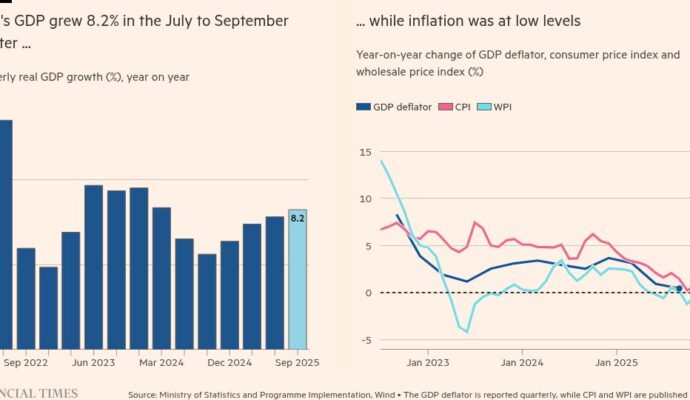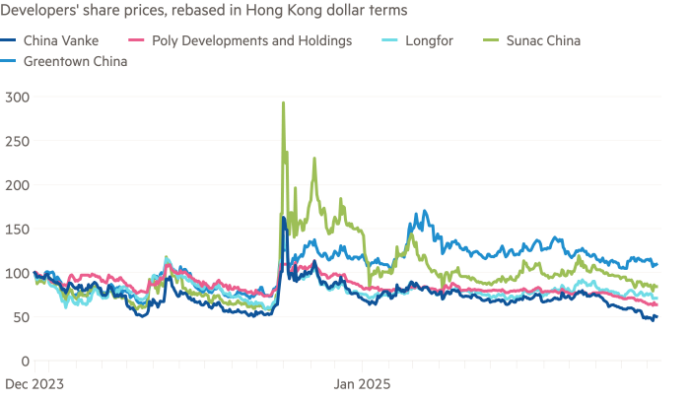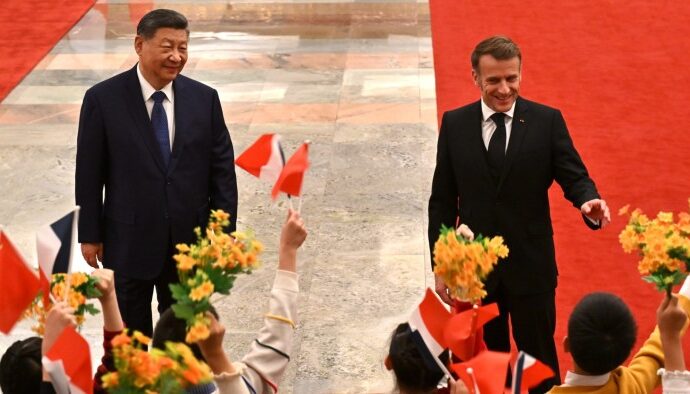Receive free Chinese politics & policy updates
We’ll send you a myFT Daily Digest email rounding up the latest Chinese politics & policy news every morning.
China has passed a new foreign relations law that deepens President Xi Jinping’s control over the country’s external relations and strengthens the government’s legal basis for “countermeasures” against western threats to national and economic security.
The official Xinhua news agency reported on Wednesday that the National People’s Congress, China’s rubber-stamp parliament, had approved the law. The legislation is likely to provide firmer legal backing for Beijing to respond to western measures such as sanctions and export controls but could undermine efforts to attract overseas investment.
The nationalist Global Times tabloid said the law, which takes effect on Saturday, would provide a “legal basis for the diplomatic struggle against sanctions” as well as sound a “warning and deterrence against western hegemony”.
Its passage comes as US-China relations have sunk to their lowest in decades and as western concerns have grown over Beijing’s increasing military assertiveness against Taiwan and backing of Moscow despite Russia’s invasion of Ukraine.
The law also enshrined a number of Xi’s hallmark policies such as the Global Security Initiative, a proposed alternative international defence framework that experts see as a long-term challenge to the US-led order.
Willy Lam, a senior fellow at The Jamestown Foundation, said while the law did not guarantee Beijing would take greater actions, it would “tighten” Xi’s strong control over matters related to national security, underscoring the long-term ambitions of China’s most powerful leader since Mao Zedong.
“Xi Jinping remains committed to building up a China-centric ‘new world order’ to defy the US-led western order, which has been in existence since the second world war,” he said.
Chinese authorities have taken a series of actions targeting western business interests in the country over the past six months. These include a crackdown on foreign due diligence firms; a record fine imposed on London-headquartered auditor Deloitte; a ban on US chipmaker Micron’s products from critical infrastructure; sanctions against US arms contractors Lockheed Martin and Raytheon; and the detention of a Japanese executive.
The pressure on western businesses has been seen as a response to mounting US trade and technology restrictions under presidents Donald Trump and Joe Biden, including Washington’s recent efforts to restrict exports of advanced semiconductors and chipmaking equipment to China.
The Global Times described China’s new law as a response to “new challenges in foreign relations, especially when China has been facing frequent external interference in its internal affairs under the western hegemony with unilateral sanctions and long-arm jurisdiction”.
But Beijing’s retaliatory measures, including an expanded anti-espionage law, could undercut attempts by Xi’s administration to woo foreign investment this year as the world’s second-biggest economy struggles to recover from three years of pandemic isolation.
Xi on Tuesday promised to “continue to vigorously promote high-level opening up and better protect the rights and interests of foreign investors” during a meeting with New Zealand’s prime minister Chris Hipkins, according to Xinhua.
“If the Chinese economy remains weak, then Beijing will lack the requisite power to underpin its power projection,” Lam said. “There is always this contradiction.”


